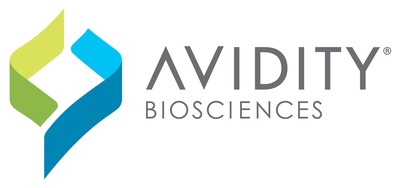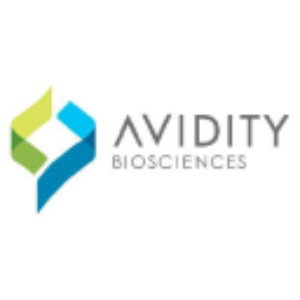Avidity Biosciences Announces the Accelerated Approval Regulatory Pathway in the U.S. is Open for Del-Brax and Initiates the Global, Confirmatory Phase 3 FORWARD™ Study in FSHD
Rhea-AI Summary
Positive
- FDA clearance for accelerated approval pathway could expedite del-brax's market entry
- First-in-class therapy targeting the underlying cause of FSHD, addressing an unmet medical need
- Large addressable market of 45,000-87,000 patients in US and Europe
- Comprehensive Phase 3 FORWARD study initiated with 200 patients across multiple regions
Negative
- BLA submission not expected until H2 2026
- Full approval will require successful completion of confirmatory Phase 3 trial
- Study results and regulatory approval not guaranteed
News Market Reaction
On the day this news was published, RNA declined 9.88%, reflecting a notable negative market reaction.
Data tracked by StockTitan Argus on the day of publication.
-- Planning accelerated approval BLA submission in H2 2026, following topline data from
FORTITUDE™ biomarker cohort in Q2 2026 --
-- Initiated global, confirmatory Phase 3 FORWARD™ study of del-brax 2mg/kg
every six weeks --
-- Investor and analyst webcast event today, Monday, June 9, 2025 at 8 a.m. ET --
Del-brax is the first investigational therapy designed to treat the underlying cause of FSHD by directly targeting the disease-causing gene, double homeobox 4 (DUX4). Currently, there are no approved therapies for the treatment of FSHD, a rare, hereditary disorder marked by life-long, relentless loss of muscle strength and function, significant pain, fatigue, and progressive disability. FSHD affects approximately 45,000 to 87,000 people in
"Our regulatory and clinical development progress announced today reflect our continued leadership in rare neuromuscular diseases and bring us a step closer to providing a treatment option to the FSHD community that could meaningfully impact their disease," said Sarah Boyce, president and chief executive officer at Avidity. "We have confirmed with the FDA that the accelerated approval pathway is open for del-brax. In addition, we have initiated our global confirmatory Phase 3 study intended to support our global approval strategy for del-brax."
In addition to the standard guidance for the accelerated approval pathway, the company has been given detailed direction by FDA on the necessary validation steps for the surrogate biomarker. FDA's Accelerated Approval Program was instituted to allow for earlier approval of drugs that treat serious conditions, and fill an unmet medical need based on a surrogate endpoint. A surrogate endpoint is a marker, such as a laboratory measurement, radiographic image, physical sign or other measure that is thought to predict clinical benefit but is not itself a measure of clinical benefit. The use of a surrogate endpoint can considerably shorten the time required prior to receiving FDA approval. Drug companies are still required to conduct studies to confirm the anticipated clinical benefit.
To support full approval Avidity has initiated FORWARD, a global, confirmatory, Phase 3, randomized, placebo-controlled, double-blind, 18-month study designed to evaluate 2mg/kg of del-brax every six weeks in approximately 200 people (ages 16-70) living with FSHD in
"People living with FSHD experience severe and unpredictable muscle loss, along with the constant uncertainty of how the disease will progress," said Mark Stone, CEO of FSHD Society. "We are grateful to Avidity for their innovative approach that takes into account feedback from our community, specifically in the development of a biomarker that provides insights into the real, whole-body burden of FSHD. This research enables the pursuit of a regulatory pathway that may make del-brax available to the FSHD community more quickly. This progress, along with the initiation of the FORWARD Phase 3 study and the stellar del-brax data from FORTITUDE, offers real hope for those urgently needing treatment options."
Video Webcast Information
The Company is hosting an investor and analyst event today, June 9, 2025 at 8:00 a.m. ET. Avidity management will be joined by Jeffrey M. Statland, M.D., Professor of Neurology, University of Kansas Medical Center, and FORTITUDE™ trial investigator, to discuss these updates relating to del-brax in FSHD. The virtual event will be available via a live video webcast and can be accessed here or from the "Events and Presentations" page in the "Investors" section of Avidity's website. A replay of the webcast will be archived on Avidity's website following the event.
About the Phase 3 FORWARD™ Trial
FORWARD™ is a global, confirmatory Phase 3, randomized, placebo-controlled, double-blind, 18-month study designed to evaluate delpacibart braxlosiran (del-brax) in approximately 200 people (ages 16-70) living with FSHD. The trial will be conducted at approximately 45 global sites including in the
About the Phase 1/2 FORTITUDE™ and Phase 2 FORTITUDE-OLE™ trials
The FORTITUDE™ trial is a randomized, placebo-controlled, double-blind, Phase 1/2 clinical trial designed to evaluate single and multiple doses of delpacibart braxlosiran or del-brax in 90 participants with facioscapulohumeral muscular dystrophy (FSHD). FORTITUDE is evaluating the safety, tolerability, pharmacokinetics, and pharmacodynamics of del-brax administered intravenously. Activity of del-brax is being assessed using key biomarkers, including DUX4-regulated muscle and circulating biomarkers and magnetic resonance imaging (MRI) measures of muscle volume and composition. Though the Phase 1/2 trial is not statistically powered to assess functional benefit, it explores the clinical activity of del-brax including measures of functional mobility and muscle strength as well as patient reported outcomes and quality of life measures.
The trial has a total of three dose cohorts. The first two dose escalation cohorts evaluated 2 mg/kg or 4 mg/kg of del-brax versus placebo and were designed to assess safety as well as inform the dose and dose regimen of del-brax for additional studies. Avidity has completed enrollment in the dose escalation cohorts and identified 2 mg/kg every six weeks of del-brax as the dose for future clinical trials.
The third, ongoing biomarker cohort in the FORTITUDE trial assesses the impact of del-brax 2 mg/kg every six weeks versus placebo for 12 months in people living with FSHD, ages 16-70. The primary endpoint of the biomarker cohort is reduction of KHDC1L, a novel DUX4-regulated circulating biomarker. Enrollment in the biomarker cohort is complete and blinded treatment is ongoing.
Participants who complete FORTITUDE have the option to enroll in the ongoing FORTITUDE open-label extension (FORTITUDE-OLE™) study evaluating the long-term safety and tolerability of del-brax in participants living with FSHD. For more information about the FORTITUDE trial, visit the FORTITUDE study website or visit http://www.clinicaltrials.gov and search for NCT05747924. For more information on the FORTITUDE-OLE study click here or visit http://www.clinicaltrials.gov and search for NCT06547216.
About Del-brax
Del-brax is designed to treat the underlying cause of FSHD, which is caused by the abnormal expression of a gene called double homeobox 4 or DUX4. The abnormal expression of DUX4 protein leads to changes in gene expression in muscle cells that are associated with the life-long, progressive loss of muscle function in patients with FSHD. Del-brax aims to reduce the expression of DUX4 mRNA and DUX4 protein in muscles in people with FSHD. Del-brax consists of a proprietary monoclonal antibody that binds to the transferrin receptor 1 (TfR1) conjugated with a siRNA targeting DUX4 mRNA. Del-brax is currently in registrational-stage studies including FORTITUDE biomarker cohort and the global, confirmatory, Phase 3 FORWARD trial in individuals with FSHD. The
About Facioscapulohumeral Muscular Dystrophy (FSHD)
Facioscapulohumeral muscular dystrophy (FSHD) is a rare, progressive, and variable hereditary muscle-weakening condition marked by life-long, relentless loss of muscle function, significant pain, fatigue, and progressive disability. It is characterized by progressive and often asymmetric skeletal muscle loss that initially causes weakness in muscles in the face, shoulders, arms and trunk and progresses to weakness in muscles in the lower body. FSHD is an autosomal dominant disease caused by the aberrant expression of the DUX4 (double homeobox 4) gene in the skeletal muscle, which activates genes that are toxic to muscle cells and leads to a series of downstream events that result in skeletal muscle wasting and compromised muscle function. Skeletal muscle weakness results in physical limitations throughout the whole body, including an inability to lift arms for more than a few seconds, loss of ability to show facial expressions and serious speech impediments. These symptoms cause many people affected by FSHD to become dependent on the use of a wheelchair for mobility. Currently, there are no approved treatments for people living with FSHD.
About Avidity
Avidity Biosciences, Inc.'s mission is to profoundly improve people's lives by delivering a new class of RNA therapeutics - Antibody Oligonucleotide Conjugates (AOCs™). Avidity is revolutionizing the field of RNA with its proprietary AOCs, which are designed to combine the specificity of monoclonal antibodies with the precision of oligonucleotide therapies to address targets and diseases previously unreachable with existing RNA therapies. Utilizing its proprietary AOC platform, Avidity demonstrated the first-ever successful targeted delivery of RNA into muscle and is leading the field with clinical development programs for three rare neuromuscular diseases: myotonic dystrophy type 1 (DM1), Duchenne muscular dystrophy (DMD) and facioscapulohumeral muscular dystrophy (FSHD). Avidity is also advancing two wholly-owned precision cardiology development candidates addressing rare genetic cardiomyopathies. In addition, Avidity is broadening the reach of AOCs with its advancing and expanding pipeline including programs in cardiology and immunology through key partnerships. Avidity is headquartered in San Diego, CA. For more information about our AOC platform, clinical development pipeline and people, please visit www.aviditybiosciences.com and engage with us on LinkedIn and X.
Forward-Looking Statements
Avidity cautions readers that statements contained in this press release regarding matters that are not historical facts are forward-looking statements. These statements are based on the company's current beliefs and expectations. Such forward-looking statements include, but are not limited to, statements regarding: Avidity's plans to file a BLA for accelerated approval of del-brax and the timing thereof; the potential for del-brax to achieve accelerated approval from the FDA; the status of accelerated approval as a regulatory pathway for del-brax; the use of KHDC1L as the primary endpoint in the FORTITUDE™ biomarker cohort; topline data from the biomarker cohort of the FORTITUDE trial and the timing thereof; characterization of data from the FORTITUDE trial; the potential for del-brax to improve the lives of people with FSHD; the status of the FORTITUDE trial and the cohorts therein and the FORWARD™ trial, including without limitation progress, initiation, enrollment, design, goals and dosage levels and frequencies.
The inclusion of forward-looking statements should not be regarded as a representation by Avidity that any of these plans will be achieved. Actual results may differ from those set forth in this press release due to the risks and uncertainties inherent in Avidity's business and beyond its control, including, without limitation: the data and results produced from the FORTITUDE trial as of the most recent cutoff dates may not be indicative of final results, may not support BLA submission or accelerated approval, may not be satisfactory to the FDA and other regulators, and new analyses of existing data and results may produce different conclusions than established as of the date hereof; data delivered to the FDA may not support accelerated approval pathways or BLA submissions and may not be satisfactory to the FDA, including as a result of our inability to establish that a novel biomarker may serve as a surrogate endpoint reasonably likely to predict a clinical benefit; even if approved, Avidity may not be able to execute any successful product launches; unexpected adverse side effects to, or inadequate efficacy of, del-brax that may delay or limit its development, regulatory approval and/or commercialization; later developments with the FDA and other global regulators that could be inconsistent with the feedback received to date; Avidity's approach to the discovery and development of product candidates based on its AOC™ platform is unproven and may not produce any products of commercial value; potential delays in the commencement, enrollment, data readouts and completion of clinical trials; Avidity's dependence on third parties in connection with clinical testing and product manufacturing; legislative, judicial and regulatory developments in
Investor Contact:
Kat Lange
(619) 837-5014
investors@aviditybio.com
Media Contact:
Kristina Coppola
(619) 837-5016
media@aviditybio.com
![]() View original content to download multimedia:https://www.prnewswire.com/news-releases/avidity-biosciences-announces-the-accelerated-approval-regulatory-pathway-in-the-us-is-open-for-del-brax-and-initiates-the-global-confirmatory-phase-3-forward-study-in-fshd-302476170.html
View original content to download multimedia:https://www.prnewswire.com/news-releases/avidity-biosciences-announces-the-accelerated-approval-regulatory-pathway-in-the-us-is-open-for-del-brax-and-initiates-the-global-confirmatory-phase-3-forward-study-in-fshd-302476170.html
SOURCE Avidity Biosciences, Inc.










